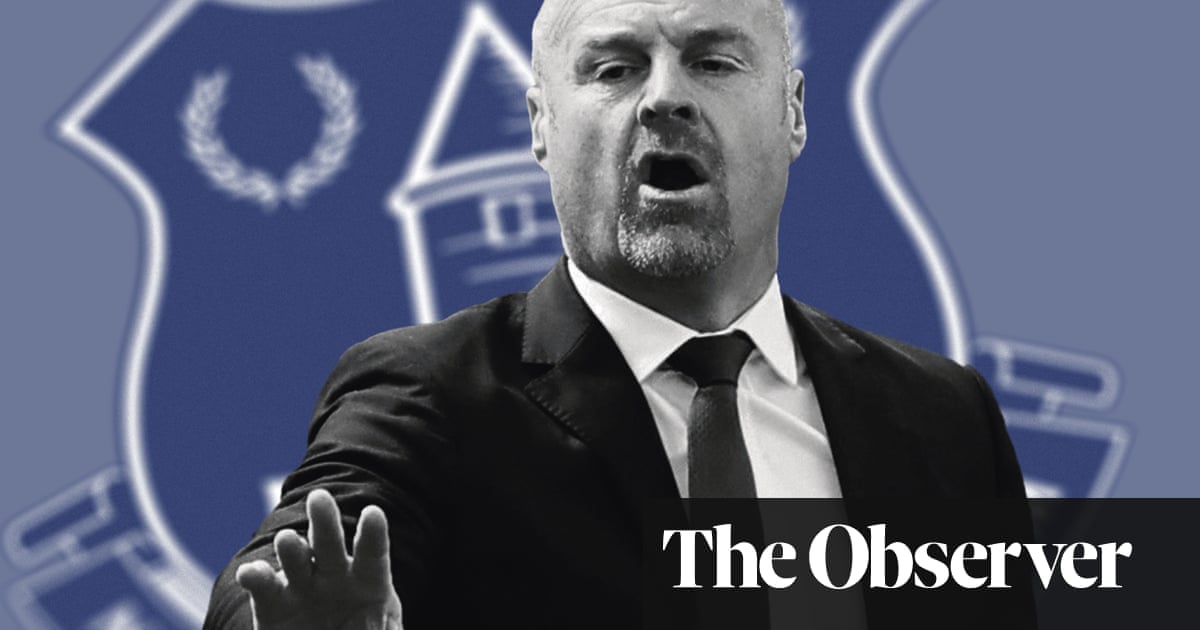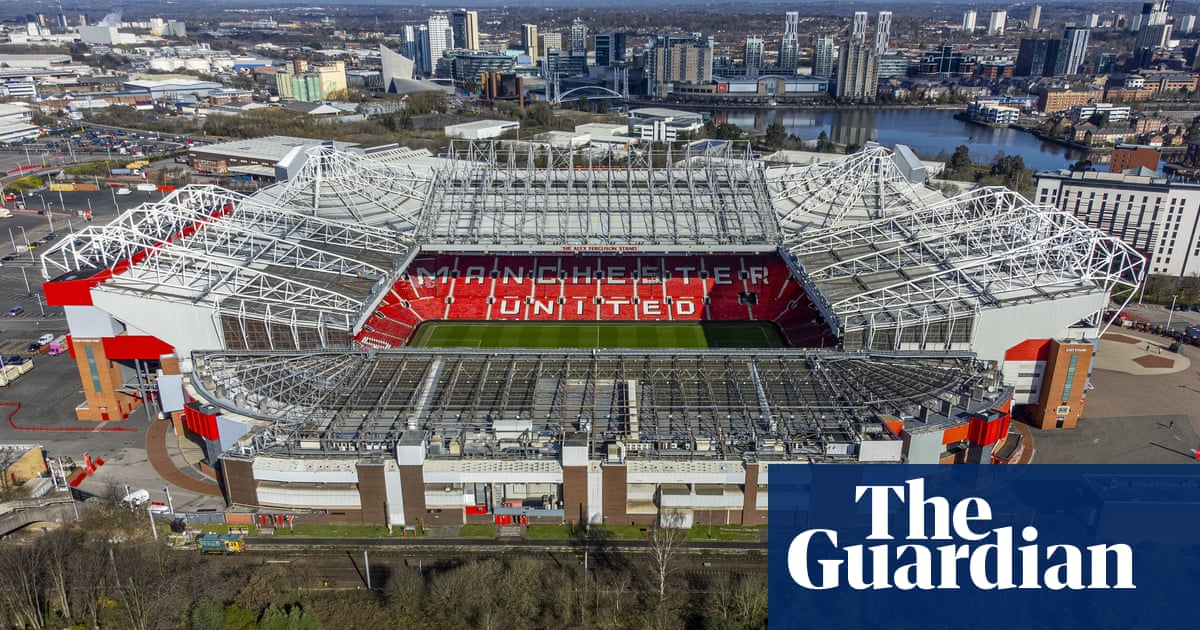
Everton have four Premier League games to avoid a first relegation since 1951. The club have been resident in the top flight since returning from the old Second Division in 1954 and, according to the latest accounts, their “ability to continue as a going concern” will be in doubt should they fall through the trapdoor this month. Just what are their prospects of survival before Monday’s visit to European hopefuls Brighton?
Has Sean Dyche improved Everton?
Fractionally and, with an average of one point per game since taking over, not by enough to avoid a relegation the club cannot afford. Everton were second bottom when the former Burnley manager replaced Frank Lampard on 30 January – one day before the transfer window closed – and that’s where they remain.
There was an initial bounce with Dyche winning two of his opening three matches, against Arsenal and Leeds; both 1-0, both at Goodison Park and both with an organisation and resilience reminiscent of the new manager’s best days at Turf Moor. Since then, however, the team have regressed to type.
Their current run is worryingly similar to the one that led to Lampard becoming the sixth Everton manager sacked in less than seven years by Farhad Moshiri, the hapless owner. Everton have won once in 11 Premier League games, scoring 10, conceding 22 and collecting eight points. Lampard’s last 11 league games brought one win, seven goals for, 19 against and five points.
Why has the initial bounce not been sustained?
Better managers than Dyche have understandably struggled with an imbalanced, limited squad the Everton hierarchy has weakened since last season’s brush with relegation. The team’s league position is an accurate reflection of the level served up all season, with their lack of firepower proving predictably costly.
But some Dyche decisions have contributed to the fall-off and in ways that belie his reputation. Everton have become a soft touch again, collapsing in their most recent defeats by Fulham and Newcastle and are even more vulnerable defensively than under Lampard.
Conor Coady and James Tarkowski were the central defensive partnership in Dyche’s first four games in charge. Everton kept two clean sheets and conceded four goals. Since Michael Keane was introduced at the expense of Coady, however, Everton have kept two clean sheets in 10 games and conceded 20 goals, an average of two per game.
Yerry Mina and Coady are stronger defenders than the unconvincing Keane but Dyche, who claims to seek the smallest margins in search of victory, clearly has a blind spot in the case of his former Burnley favourite. The manager insists the issue is collective rather than individual and that Coady is better suited to a back three.
His deployment of Ben Godfrey and Mason Holgate at right-back in place of the sorely missed Séamus Coleman, while the Scotland full‑back Nathan Patterson sat on the bench, plus his switch to a four‑man midfield during Abdoulaye Doucouré’s costly suspension, also backfired.
Reasons to be fearful?
All of the above, plus a dreadful away record and Manchester City lying in wait after Monday’s trip to Brighton, a club that can teach Everton a multitude of lessons on recruitment (players and managers), coherent strategy, financial planning and sound leadership.
Everton must give themselves a fighting chance before the final two games of the season, at Wolves and at home against Bournemouth. Everton have won once away in the Premier League all season – at Southampton on 1 October – and are enduring the longest run without an away victory in the division.
They are also the lowest scorers in the top four divisions of English football with a mere 27, after selling Richarlison and buying Neal Maupay last summer, then compounding their errors by signing no one in January. The redoubtable Coleman, the captain, is also missing for the rest of the season with a knee ligament injury.
Any reasons for hope?
Monday’s draw at Leicester coupled with the improving match fitness of Dominic Calvert-Lewin. The trip to the King Power Stadium did not bring the three points Everton deserved and desperately needed but the display was undoubtedly the team’s strongest since Dyche’s first‑game win against the then league leaders, Arsenal.
Two goals were again conceded cheaply but there was impressive character throughout a high-pressure away game and vast improvement in the final third. Everton’s 23 attempts on goal at Leicester represented their highest in a league game since November 2019.
Calvert-Lewin was central to the improvement, as he is to Everton’s chances of survival. The England international missed a gilt‑edged chance on Monday but he looked much fitter and sharper on his third consecutive start since returning from a long-term hamstring injury. His movement and hold-up play enhanced the entire team, along with Dyche’s argument that, contrary to results and the league table, progress is slowly being made.
How ruinous would relegation be?
Potentially catastrophic. Everton’s combined losses over the past three financial years stand at £305.5m and a staggering £417.3m over the past four years. The club is under investigation by the Premier League for an alleged breach of its profit and sustainability rules, owes about £150m to an opaque lender called Rights and Media Funding Limited and needs around £300m to complete the new stadium being built at Bramley-Moore Dock.
For all the talk of fresh investment from private equity firms MSP Sports Capital or 777 Partners, Moshiri has yet to secure the extra stadium funding while Everton are a Premier League club. In the Championship, Everton would suffer a huge reduction in income while having to meet tighter financial constraints than exist in the top flight.
The EFL has also shown itself to be far tougher in imposing sanctions for any financial breaches than the Premier League. An immediate fire sale of assets (Jordan Pickford, Amadou Onana, Calvert-Lewin) could be the least of their worries.
Everton’s auditors reported in the accounts in March: “Should the club be relegated, it will require additional financial support from its majority shareholder, who themselves are reliant on support from their majority shareholder, who have indicated they are supportive of the group but the support is not legally or contractually binding. These matters indicate that a material uncertainty exists that may cast significant doubt over on the group’s ability to continue as a going concern.”












